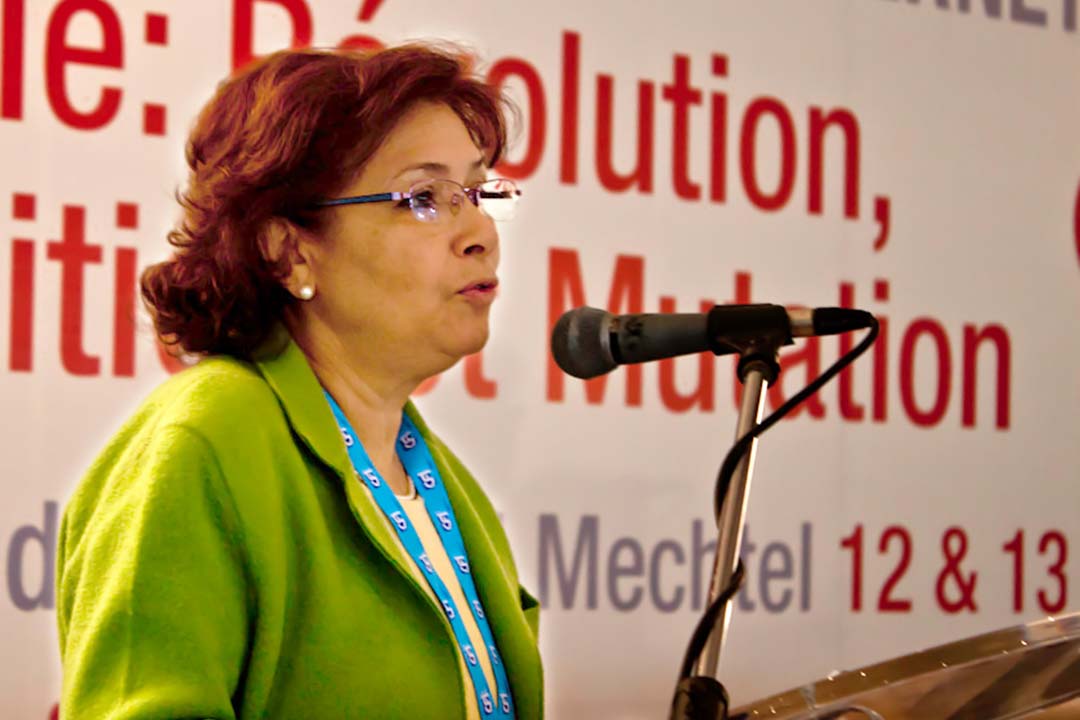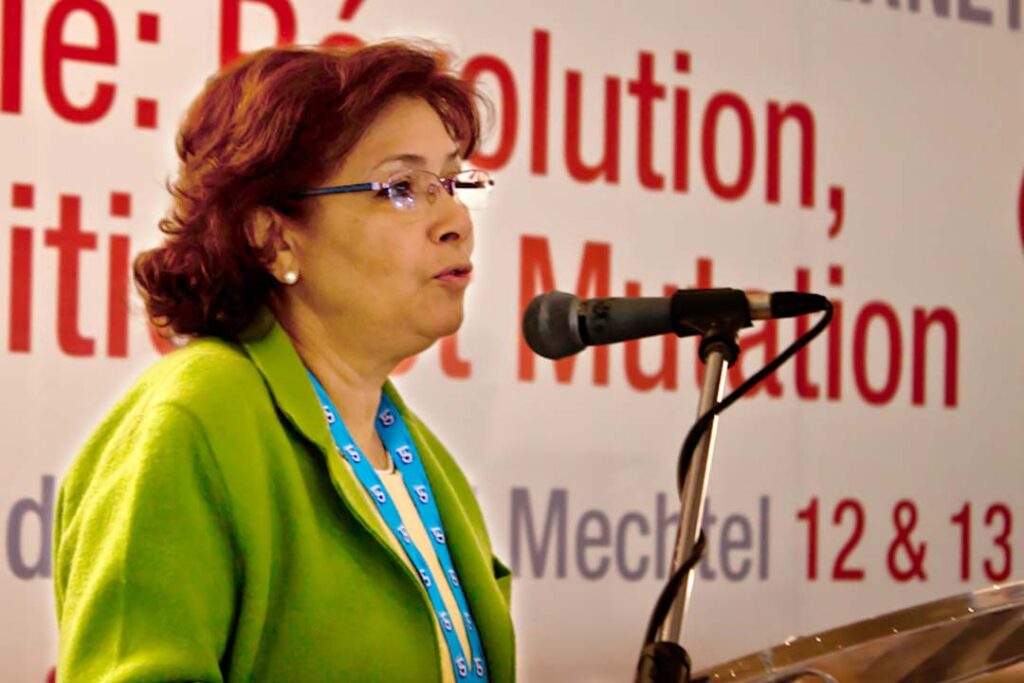
Tunisia’s “transitional justice” process, which was set in motion in late 2013 after the 2011 revolution that overthrew the regime of Zine el-Abidine Ben Ali, has been bedevilled by problems from inception. A lack of precision in the law that launched the process, as well as public disagreements among members of a new truth commission, have confused the country. Moreover, a controversial bill drafted in July 2015 by the office of Tunisia’s current president, Beji Caid Sebsi, which sought to remove all corruption cases from the ambit of the truth commission’s investigations, has caused a political storm. Tunisia’s constituent assembly approved a transitional justice law in December 2013, creating a Truth and Dignity Commission (TDC). Proposed by the Islamist-led coalition government, the law tasked the TDC with investigating all “serious or organised” human rights violations that occurred between July 1955, shortly before independence from France, and December 2013. Secondly, the commission was to make recommendations for reform. Victims would receive reparations, either financial or social (such as being given access to employment previously denied).
The law also empowered the TDC to identify any officials still in place who had been responsible for human rights violations, and gave it the power to dismiss them. However it emphasised a need for “reconciliation” aimed at “establish[ing] citizens’ confidence in state institutions”. The TDC’s 15 members were to include rights activists, legal experts and representatives of relevant specialisations, including archivists and physicians. Though the main focus was on individual victims who had suffered under a repressive state, the aim of the TDC was also to uncover cases of “financial corruption and the embezzlement of public funds” that had occurred during the period under review. Serious cases of human rights abuses (such as homicide, torture and rape cases) and cases of corruption and electoral fraud could be handed over to the judicial system by the commission. They would then be heard by specially created panels of judges attached to Tunisia’s existing criminal courts. However, the TDC’s ability to fulfil its mandate was jeopardised by political infighting.
In June 2014, Sihem Bensedrine, a former journalist with a strong track record of dissent under Mr Ben Ali, was appointed TDC president after its first chair resigned — officially due to ill health, but more likely because of internal disputes. Squabbles within the TDC peaked in August 2015, leading to more resignations and an unsuccessful move to dismiss Mrs Bensedrine’s deputy, Zouheir Makhlouf, after he alleged financial malpractice within the TDC. Confronted with a wide range of abuses and corruption, the TDC has had a heavy workload. Some Tunisians seeking redress from the TDC are surviving followers of Salah Ben Youssef, a rival nationalist leader to Habib Bourguiba, Tunisia’s first post-independence president. Others presenting their cases to the TDC are from a later generation of Tunisians espousing leftist ideologies who had faced imprisonment and torture. Then, from 1987, under Bourguiba’s successor, Zine al-Abidine Ben Ali, members of an Islamist movement that later renamed itself Nahda (“Awakening”) bore the brunt of the security services’ violence.
In the later years of Mr Ben Ali’s rule, rackets run by his in-laws, the Trabelsis, reportedly plundered ever-wider areas of the economy. Civil servants were drawn into their web of unscrupulous dealings — if only, in some cases, by turning a blind eye. TDC members have begun closed-door hearings of some individual victims. By June 2015 13,000 people had presented their cases for consideration. Public hearings of certain cases, selected as illustrations of the wider phenomenon of repression, are to follow, Mrs Bensedrine said in May. Victims and perpetrators will give evidence in these televised hearings. Even the most egregious rights abusers may be allowed to testify and thus avoid having their cases referred to the courts, she said. But the 2013 law provides only an outline of procedures to be followed, and appears to have left considerable latitude to the TDC on this and other points. As an assertive woman in a male-dominated political establishment, Mrs Bensedrine has many detractors.
Members of a parliament dominated by Nidaa Tounes (‘Tunisian Call’), the centrist party founded by Mr Caid Sebsi, are among her most vocal critics. The party also draws some support from former members of Mr Ben Ali’s dissolved ruling party, the Constitutional Democratic Rally. Many in the ranks of Nidaa Tounes regard Mrs Bensedrine as likely to favour Islamist victims’ stories over those of leftists. The TDC has been at pains to dispel this idea. The tensions erupted into a full-scale political storm in July over a proposed new law drafted by the president’s office. Mr Caid Sebsi’s bill on economic reconciliation seeks to remove all cases of corruption from the TDC’s area of responsibility. Critics say it is aimed at drastically undercutting the TDC’s jurisdiction. If approved, the law would see cases of financial misdemeanour handed over to a new, slimmer six member arbitration panel. Like the TDC’s arbitration commission, this panel would receive applications from business people and senior civil servants offering to provide full details of past corruption and to make appropriate refunds.
Mr Caid Sebsi argues that a more “streamlined process” would encourage business people who are under suspicion to continue making job generating investments with confidence. For instance, banks would be more likely to lend them money if they did not feel deterred by the possibility of subsequent confiscations of their clients’ businesses or profits. The preamble to the bill establishes that all officials would be eligible for amnesty for “acts linked to financial corruption…as long as these acts were not intended to secure personal advantage”. Ongoing court cases and penalties imposed for “acts connected with financial corruption or the undermining of public finances” by “civil servants or similar” would be halted. A fast-track three-month “reconciliation process” would allow those who profited personally to agree with the six-member panel on how much money they should repay. The panel would also include two TDC members. The other four would be government or civil service representatives: one each from the prime minister’s office, the justice and finance ministries and the ministry handling state assets.
Even given public acceptance of this measure, the TDC’s remaining workload would be substantial. It would still be responsible for the initial investigation of human rights abuses large and small, as well as appropriate settlements for them. Cases of denial of rights to personal liberty, freedom of expression, public assembly, a private life, or employment, as well as far more serious rights abuses, would still remain within the TDC’s remit. However, by September, the president’s draft law had prompted street protests and a social media campaign under the slogan, Manich Msameh (“We do not pardon” in Tunisian Arabic). Campaigners argued that the bill represented an attempt by members of the political elite—and Mr Caid Sebsi is a member of the political and social elite par excellence—to accord special treatment to cronies. The draft economic reconciliation law was sent to parliament for debate in September. With Nidaa Tounes controlling a majority bloc in the legislature, but with small leftist opposition parties and the centrist Joumhouri (“Republican”) party still vociferously opposed, a lively debate was expected.
The Nahda Islamists are junior members of the ruling coalition, with one minister and three junior ministers in the cabinet. Crucially, the party has moderated its initially heavy criticism of the bill. It had said that the bill was a presidential initiative, and lacked the democratic credentials of the 2013 law, which was drafted by an elected parliament after wide-ranging discussions with civil society. Then it suggested that the bill could be acceptable, with some amendments. In October, Samir Dilou, a senior Nahda member, said that his party would propose amendments clarifying the legal criteria for granting amnesties, for example. A lawyer and former political prisoner, Mr Dilou was a member of the Nahda-led coalition government in 2012-13 that laid the groundwork for transitional justice. Meanwhile, amid the heated discussion about the proposed bill, on October 9th the Swedish Academy in Stockholm announced that the Nobel Peace Prize for 2015 had been awarded to a four-member Tunisian group of civil society representatives who helped defuse a political stand-off in 2013. The high-profile award, which drew extensive international media coverage, was interpreted by many, both inside and outside the country, as a signal that Tunisia should continue to strive for compromise and dialogue.
It increases the likelihood that some compromise will eventually be found on the economic reconciliation bill, even if this is likely to take time. Also in October, the TDC received an answer to its request for the opinion of the Venice Commission, the Council of Europe’s panel of constitutional experts, on whether the proposed law conformed with Tunisia’s new constitution of 2014, which says the state has an obligation to “apply the system of transitional justice”. On October 24th the commission indicated that the proposed law was unsatisfactory on a number of points. If the original 2013 law setting up the TDC needed improvement, “especially in the economic and financial fields”, it would fall to Tunisia’s parliament to draft any revised legislation, the commission said. This should be done in co-operation with civil society and other relevant bodies, “especially the TDC”, it added. The constitutional experts in Venice thus put the ball firmly back in parliament’s court. Controversy and debate looked set to continue well into 2016, even as the TDC in Tunis, and the four regional offices it had opened by late 2015, continued with the work of taking evidence from individual victims.



